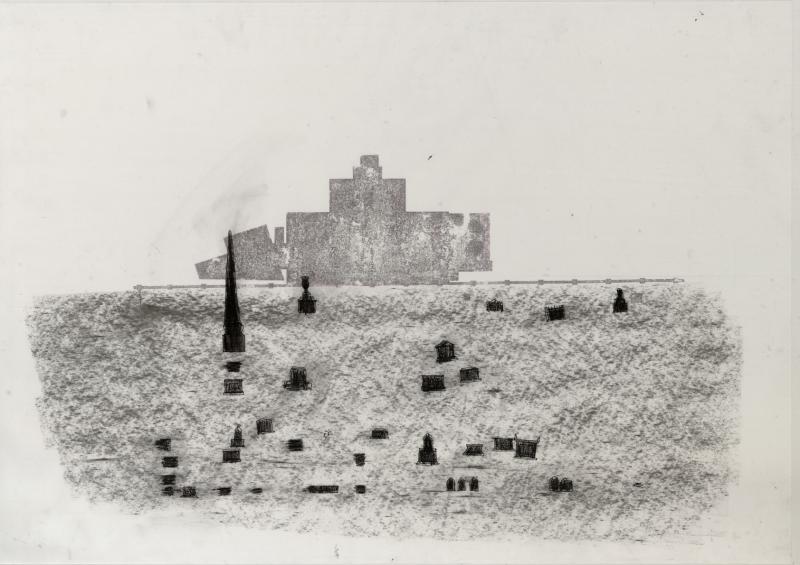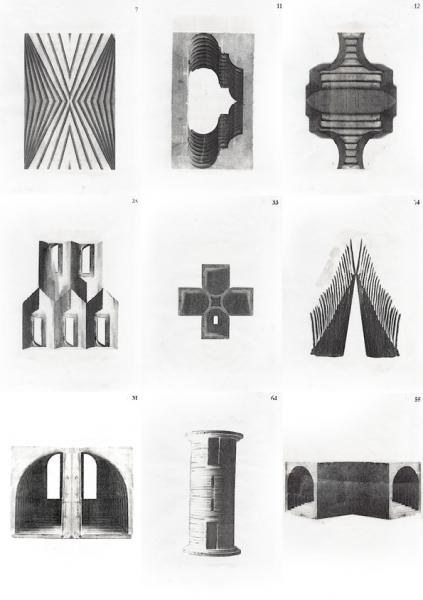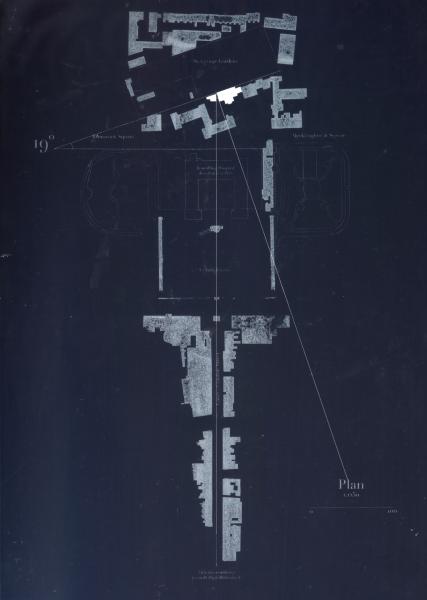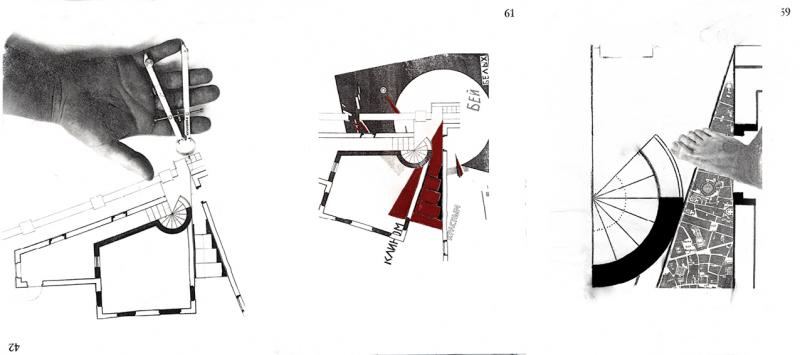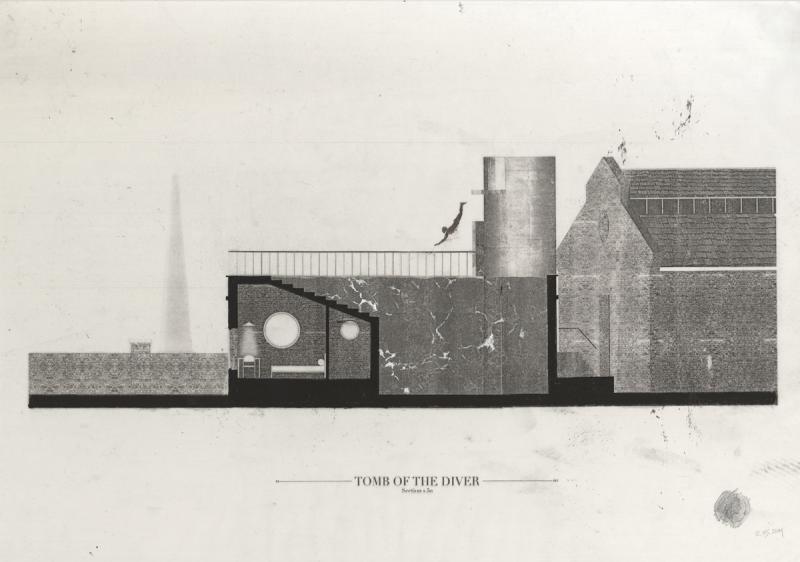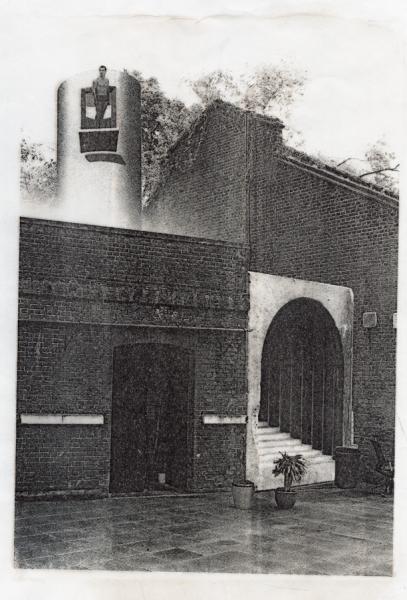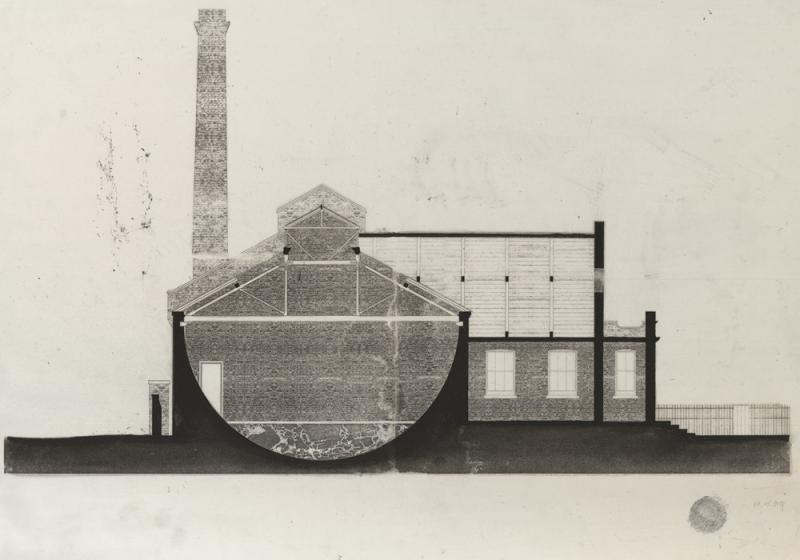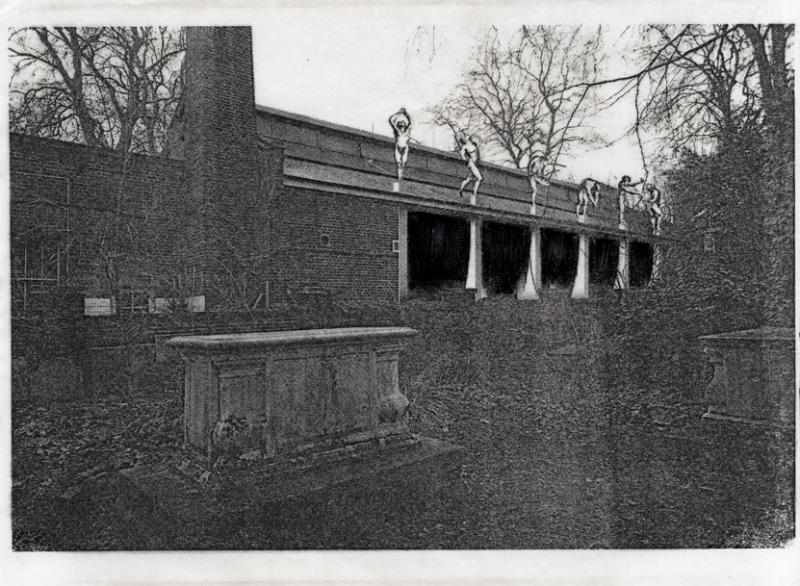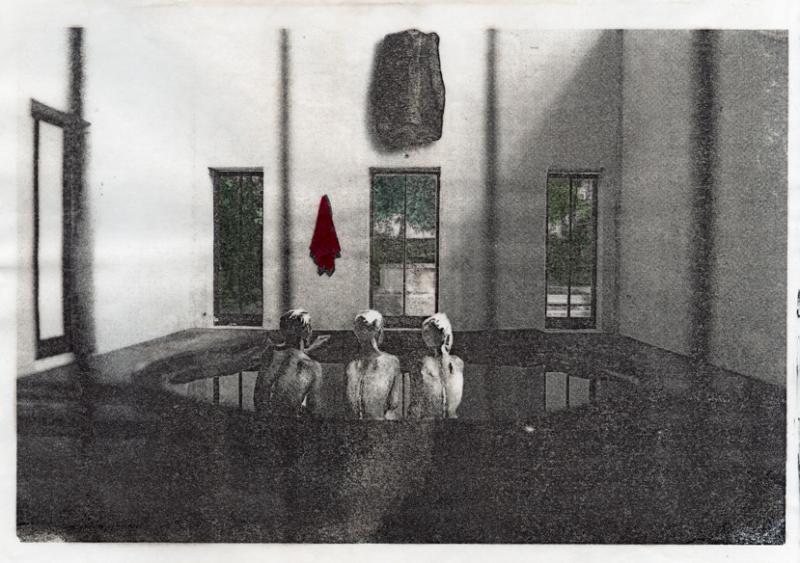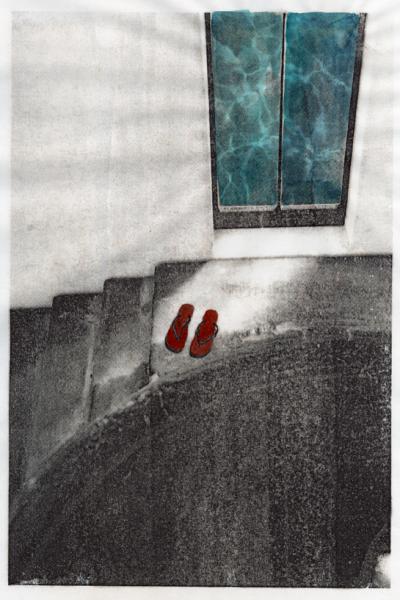Art of Swimming
Reconstruction of the Old Swimming Pool in Bloomsbury
I. The closer I look at a word, the further away it moves.
K. Kraus
II. One who writes a poem writes it because the language prompts, or simply dictates, the next line. Beginning a poem, the poet as a rule doesn’t know the way it’s going to come out, and at times he is very surprised by the way it turns out, since often it turns out better than he expected, often his thought carries further than he reckoned. And that is the moment when the future of language invades its present.
J. Brodsky
III. Architecture is before us now, but against the sense of it being dead, will be after us. When research is understood as the collection of static references to cast into a project to come, we are, in turn, provoking the past – to let it intervene the present. What remains is the evidence of life in general. We are going back*, to the point where visual form is yet to be, to witness the eidos anticipating the morphe, to learn what is behind a reference, by holding the position of both writer and reader. Instead of designing the re-search we are re-designing the search. Not to interpret or relocate architectural elements per se, by making an assortment of similarities, but to participate in the scenarios embedded in the elements; recognizing how they can revive into beings that grow, scale, hide, embrace, cut and see.
Unit 0
Various Stairs
Site plan 1.1250
Fragments of Plan
Diving pool. Section 1.50
Diving Pool. Perspective
Main Pool. Section 1.50
Portico proposal. View from St. George Gardens
View of the Hot Bath
Hot Bath. Detail
Completely Nude Descending the Stair
This video was made by Unit O (Anton Gorlenko,
Joshua Harskamp and Buster Rönngren) as the outcome of a of research seminar focusing on the painting of Marcel Duchamp.

